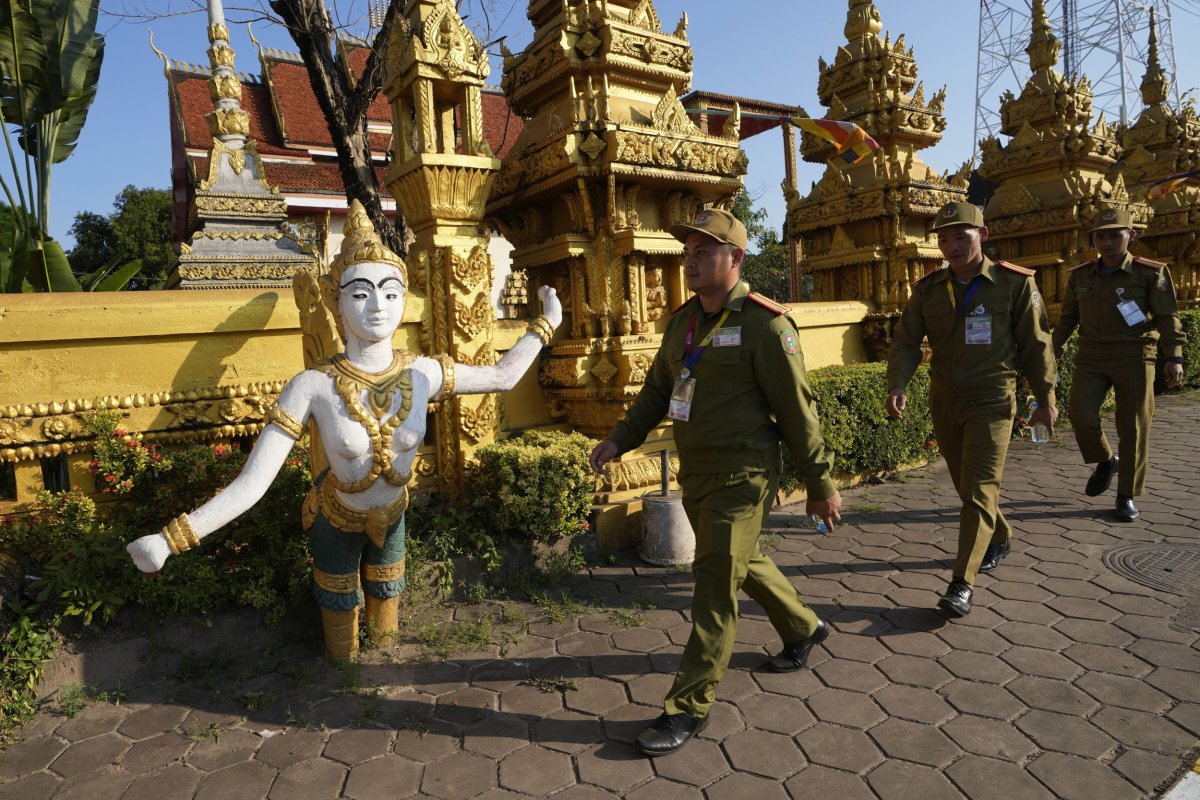Defense leaders from Southeast Asia convened in Laos on Wednesday to address escalating maritime tensions with China in the Asia-Pacific.
The two-day meeting of the Association of Southeast Asian Nations (ASEAN) defense ministers also drew representatives from the U.S., Japan, South Korea, India, and Australia, among others.
U.S. Secretary of Defense Lloyd Austin joined the talks after recent meetings with officials from Australia and Japan, where they expressed "serious concern about destabilizing actions" by China in the East and South China Seas.
China's aggressive moves have led to repeated clashes with Philippine vessels and accusations of harassment by Vietnam, Malaysia, and Brunei over competing claims.
Beijing asserts sovereignty over nearly the entire South China Sea, a stance widely contested by ASEAN nations.

China's Assertive Moves and Regional Concerns
As ASEAN members and China negotiate a code of conduct for the South China Sea, progress has been sluggish.
Officials aim to finalize the agreement by 2026, but disputes over binding commitments have hampered talks. Philippine President Ferdinand Marcos Jr. recently criticized China's actions at sea as violations of international law and called for greater urgency in finalizing the pact.
Chinese and Philippine vessels have clashed multiple times this year, while Vietnam accused Chinese forces of assaulting its fishermen in contested waters. Meanwhile, Beijing's patrol vessels have increasingly appeared in areas claimed by Indonesia and Malaysia.
US and Allies Reaffirm Support
At a recent ASEAN summit, U.S. Secretary of State Antony Blinken reaffirmed Washington's commitment to "freedom of navigation and overflight in the Indo-Pacific." Blinken condemned China's "increasingly dangerous and unlawful activities" in the South China Sea, pledging continued U.S. support for ASEAN nations facing Chinese aggression.
In response, Chinese Foreign Ministry spokesperson Mao Ning accused non-regional militaries, including the U.S., of being the primary source of instability in the region.
Questions remain over how the incoming Trump administration will handle the situation, though Austin declined to speculate on future U.S. defense policies.

Broader Security Issues Addressed
In addition to maritime disputes, ASEAN leaders discussed other pressing security concerns, including tensions on the Korean Peninsula, the Russia-Ukraine war, and conflicts in the Middle East.
The ongoing civil war in Myanmar also loomed over the talks, testing ASEAN's credibility while the group struggles to address the crisis. Myanmar's military rulers, barred from ASEAN meetings since 2021, continue to face resistance from pro-democracy forces and ethnic militias.
As regional tensions rise, ASEAN's ability to navigate these challenges and foster cooperation will be crucial in maintaining peace and stability in the Asia-Pacific.
This article includes reporting from The Associated Press




















 English (US) ·
English (US) ·